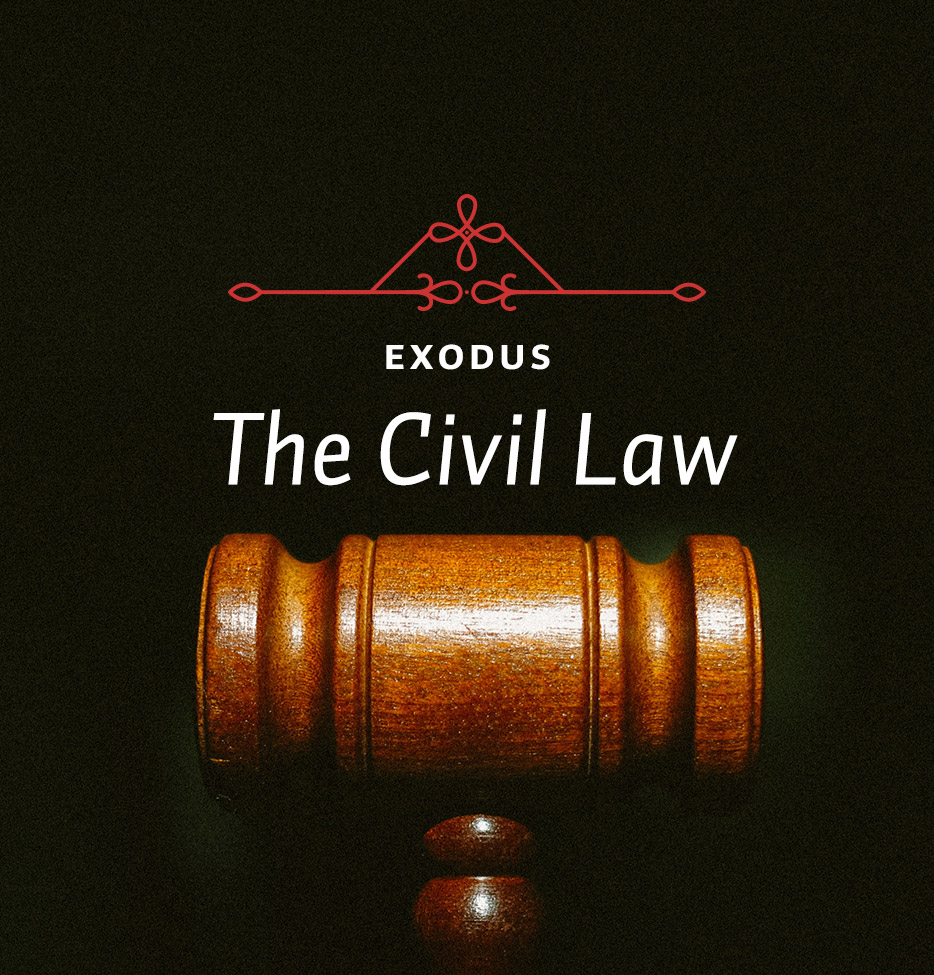Quite a few years ago, when I had finished preaching on Genesis for about eight years, I thought that it might be good to go on with the book of Exodus. I didn’t do it because of the chapters to which we come now. When you study the first half of the book of Exodus, you have a story, and it’s always easy to teach stories. We have looked at the story of the exodus and the power of God, the plagues, the destruction of the Egyptians, the leading of the people through the wilderness, and the giving of the Ten Commandments at Sinai.
But then you get to Exodus 21, and you begin to deal with what is rightly called the civil law of Israel, and after that the ceremonial law of Israel. In the perspective of most people, things just bog down at that point. Unless we are going to act with a complete lack of integrity and pull out the story part, we do have to deal with the law. And what I think we’re going to find as we deal with it is that it really is helpful.
After the giving of the Ten Commandments, we have the civil law, seen in chapters 21-23. This has to do with the new nation of Israel, and how it was to be administered, and how crimes were to be punished. We call this the civil law, but the book of Exodus actually calls this and the section on the Ten Commandments the Book of the Covenant. These chapters then conclude with the confirmation of the covenant.
The three types of law—moral, civil, and ceremonial—are found throughout the Old Testament, and this raises a question: How much of the Old Testament law is to be observed today?
Some of us don’t take the law seriously at all. That’s not to our credit. If we begin to think seriously about it, we have some difficult areas to address. Much of what we read has to do with the sacrifices. We really can’t imagine ourselves offering sacrifices today. And much of it has to do with penalties for crimes, and we cannot imagine capital punishment for things like sorcery, blasphemy, and homosexuality. But on the other hand this is the law of God given on Sinai by God himself. Who are we to say, “Well, we’ll obey some of the laws and we’re just not going to obey other laws”? This difficulty has three different answers for the question of how much of the Old Testament law is to be applied today.
The first answer is the traditional view. The traditional view distinguishes between the three categories of law that I have just distinguished, giving a different answer in each case.
For the moral law, this view says that it is binding upon us because it flows from the character of God, and His character never changes. We’re made in the image of God, and therefore we should obey a law consistent with His character. It’s also pointed out, I think rightly, that this is the very basis for civilization. If the moral law is disregarded, the civilization breaks down. That is why, when you search other law codes not necessarily connected with the Judeo-Christian tradition, you often find the same respect for life and property, truthfulness, and others.
As for the civil law, the traditional view says that we are not to apply this category of law today because that was given to Israel, and Israel was a unique kind of state, which was a theocracy, meaning that it was ruled by God. There’s never been another theocracy like this one, which was directly ruled by God. Today, for nations to function, they need to establish their own laws.
With the ceremonial law, the traditional view says that this was meant to point forward to Christ. And because He came and fulfilled the ceremonial law, it would be ludicrous for us to go back and perform sacrifices and build a tabernacle and all of that today.






